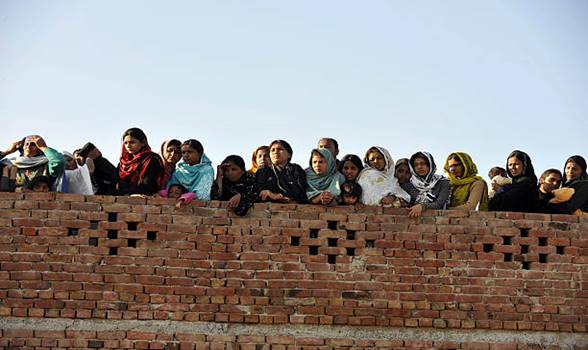
#Limepakistan Revolutionizing Menstrual Health Education across Pakistan
By Siraj Khan and Laiba Kazmi
In Pakistan, the pervasive issues of period poverty and lack of adequate Menstrual Health Management (MHM) education, perpetuate misconceptions and stigmatization. It may not be at the top of the global geopolitical agenda, but it is fast becoming a red flag in global health, human rights, gender quality, and equality mandates by grass-roots workers and activists drawing attention to the seriousness of the issue.
Last year in Pakistan, the recurring floods worsened women's and girls’ menstrual hygiene problems, compromising their health and dignity. Supply chain issues, poor facilities, and cultural stigma limit menstrual products and hygiene management, especially among women who struggle to afford hygienic products. 70.07% of high school students reported that MHM education is rare in the community with a staggering 74.02% of university students reporting a lack of it in educational institutions, exacerbating the problem.
Society for Youth (SFY), a national organization dedicated to grassroots empowerment, fostering community-centered power to address social issues within underprivileged communities has undertaken several transformative projects like Inter-faith and Youth Peace Initiative. It engages local leaders from various backgrounds, identifies community needs, and develops intervention plans based on thorough assessments of community needs. One of its notable #40In4Campaign uncovered that 58.52% of students lacked preparatory information on their first menstrual cycle, and 34.6% confronted difficulties accessing MHM products.
In response, SFY launched its Leadership in Menstrual Education Program #LIMEPakistan across Pakistan, especially in neglected areas like Mardan, Charsadda, Sawabi, Abbottabad, and Nowshera. This initiative aims to promote inclusivity and female empowerment by training 1,000 female teachers, enabling access to affordable MHM products, and creating a supportive culture that prioritizes menstrual health as a vital aspect of overall well-being. By fostering change at the individual and systemic levels, the program aims to create a lasting impact on MHM education in Pakistan by addressing the lack of awareness, sanitary products, and unpreparedness in educational institutions.
#LIMEPakistan is spearheading a transformative MHM education program through its initiative of capacity building of female teachers, equipping them with LIMEGuides covering all aspects of MHM, and facilitating activities and discussions on topics ranging from period pain management to nutritional care.
Additionally, the initiative provides an award-winning sanitary product that is not only re-usable but is also eco-friendly, designed to provide an infection-free and comfortable experience and can be utilized for up to a year, addressing the issue of accessibility to hygienic products. It reduces menstrual healthcare waste by up to 99% and spreads awareness about the environmental impact of menstrual healthcare practices. This is ground-breaking work in this space, and SFY is looking for others to join hands to collaborate with them.
#LIMEPakistan’s Pilot study/ Evaluation of Pilot study
SFY organized three one-day training sessions in Mardan as part of #LIMEPakistan’s Pilot Study, serving 46 teachers. The sessions focused on assessing the effectiveness of the curriculum and preparing for future training. Safepads were distributed along with LIME Guides, accompanied by discussions on hormonal changes and menstrual challenges.
The #LIMEPakistan project is a bold endeavor to prepare teachers to engage meaningfully and productively with students on menstrual education, developing and strengthening women’s public leadership infrastructure, and creating a network of trained educators committed to spreading MHM education rapidly across Pakistan, despite logistic limitations.
Gender-sensitive disaster management and menstrual health education programs will be effective. The Minimum Initial Service Package (MISP) can provide emergency reproductive health services. Involving men, religious leaders, and pre-disaster planning for menstrual hygiene management can help break the cultural taboos and increase access to resources. Meeting ongoing needs requires timely menstrual hygiene product distribution, restocking, and renewal. By addressing these issues, Pakistan can empower post-flood women and girls through economic opportunities and legal protection, with decency and dignity.
#LIMEPakistan is poised to revolutionize the menstrual health and hygiene activities in rural Pakistan, keeping abreast with the established guidelines from global leaders like UNICEF and WHO. It is not tomorrow. It is now. We are witnessing The Menstrual Moment.
(Siraj Khan is a world citizen, writer, and consultant in the global non-profit space. He is based in Boston and also serves on the Board of several non-profits in the US and overseas.
Laiba Kazmi is a senior at the National University of Modern Languages, Islamabad, pursuing a Bachelor of Business Administration. She is also a member of the executive team of #LIMEPakistan.)

